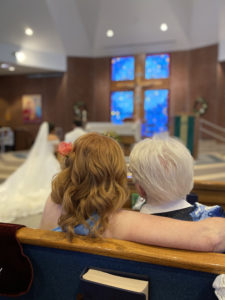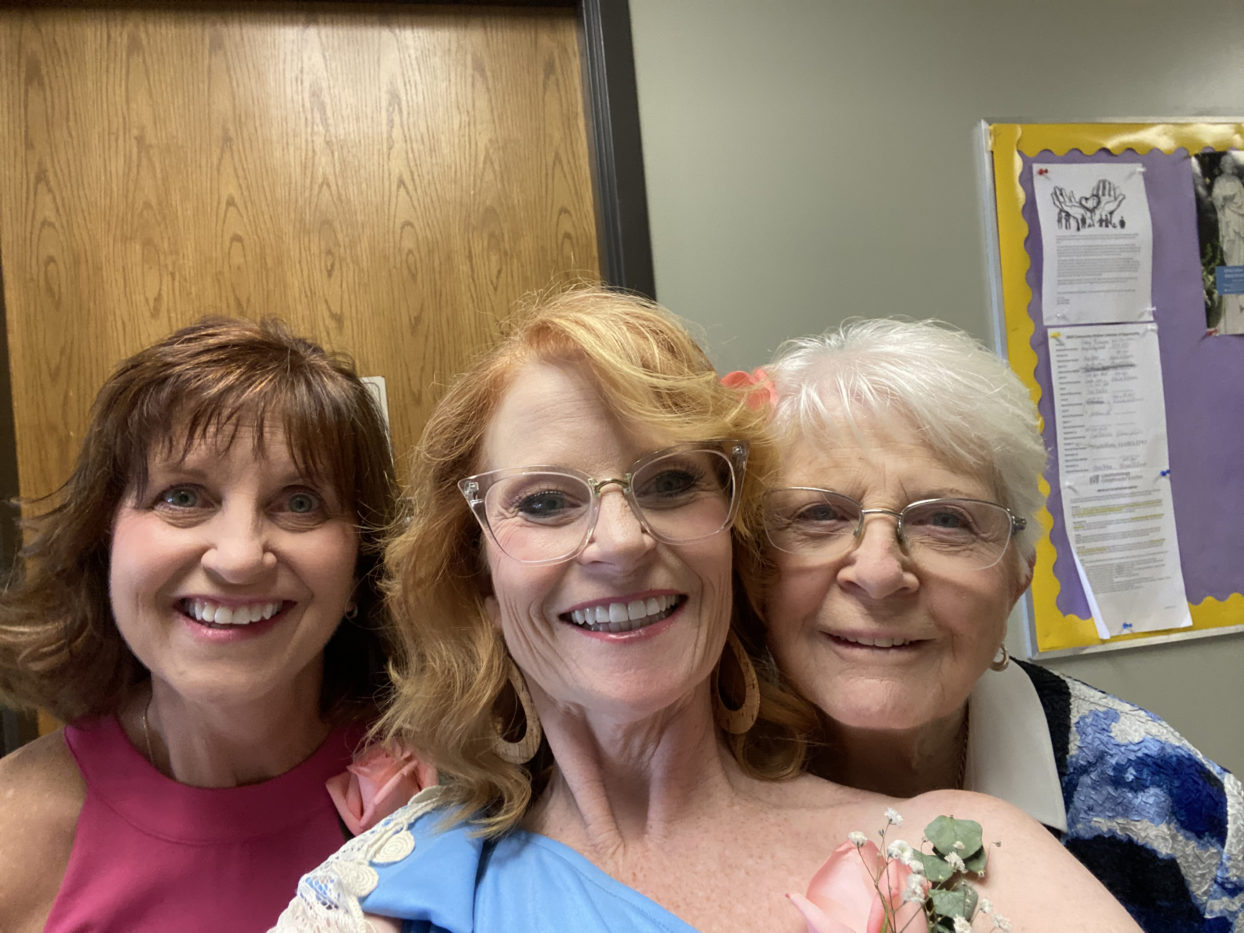Seeing a loved one battle the disease ‘is like a death over and over again . . . the long goodbye’
By Jeannie Hixon
I have a confession to make . . . lately I have found myself distracted during the Mass. I used to be distracted by the typical things that go on during a church service such as crying babies, someone sneezing, or the rustling of papers. But now I am distracted by the disease of Alzheimer’s. I am not the one afflicted with the disease, but as the caregiver, I cannot help but wait in anticipation that my sweet mom will recall the next ritual during the Mass. I watch myself getting lost in the hope that she will remember the church cues that are rooted in her brain from childhood, yet escape her memory in the here and now.
I have been witnessing my mom’s battle with Alzheimer’s for five years now. I pick my mom up for early Mass on Sunday as it’s part of her routine. This can never really change in her world, because if I decided to sleep in on a Sunday and attend the later Mass, she would become terribly confused. At this stage of the disease, both routine and faith bring her much comfort, and I feel like it’s my job as her caregiver to surround her with both. Routine is our friend.

Jeannie Hixon and mom Janet “Mimi” Tuller at the wedding of Jeannie’s son Ross Hixon at St. Stephen Church in Chattanooga.
As Catholics, we all do the Catholic traditions from a part of our brain that is rooted in routine. We genuflect, we cross ourselves, we bless with holy water, we bow at the cross, we make a small sign of the cross over forehead, mouth, and heart, we sit, we stand, we kneel. All of these Catholic rituals we do have become second nature to us in our faith journey. Having my mom with me has transitioned me from not paying attention during church to paying too much attention: not to my own spiritual growth but to hers. I find myself so busy watching and praying that the next cue is not missed and forgotten. At times, when my eyes should be closed in prayer, I find myself opening to get a peek and see if her disease has further robbed her of our religion. Not her faith, but the religion.
My mom was raised in the Church, and therefore that is the part of her memory that functions the best. She can remember childhood better than her current life. I have watched her do many things during Mass that I was not raised doing, even by her. When the bells chime during Communion, she places her fist over her heart and taps her heart three times. Her eyes are closed, yet mine are not. I am busy praying that I see her fist over her heart, and I am distracted away from my own prayers as I watch her memory fade. There have been times in Mass when my head was bowed in prayer and the tears sting my eyes because I am aware that I am witnessing my mom slowly fading away. Anytime a caregiver sees her loved one slip further away in this brutal disease, it is like a death over and over again. It is indeed the long goodbye.
There will come a day when my mother does not know who I am. I have heard others tell me that she may not know my name, but she will somehow know my importance in her life and register me as “special” in her diseased brain. I feel like I am bracing myself for that day, but there is really no way to prepare. Instead, I find myself using the Catholic Church as the barometer of whether or not my mom is still with me, and some days this overwhelms me with sadness.
If faith is in our hearts, then my mom missing the church cues is only lost on me, but not on her. She is blissfully unaware of her burdens, and she simply takes the Mass for what it is: a moment in time to wind down, pray, and believe. I think I can learn from her. I find myself cheering when I peek over and her responses are “correct,” and I find myself suddenly sad when she “missed the cue.” I assume this is how God feels about me, too, cheering when I get it right and yet so saddened when I misstep.
We will continue to spend our Sunday mornings in worship together. I will continue to be grateful for the time that I have been given with Mom and will fully believe that Alzheimer’s cannot rob us of our faith. We will continue making memories with failing memories. Onward we go . . . one day at a time, one Mass at a time, one Catholic ritual at a time—while she still can. Peace be with you.
Jeannie Hixon is a parishioner at St. Stephen Church in Chattanooga.


Comments 1
Your experience has been mine, and as my father’s sole caregiver, when I’m able to attend mass by myself (as he generally can’t attend anymore due to incontinence and mobility problems) my focus is thinking about him and checking cameras at home and questioning the wisdom of leaving him alone….as it’s progressed my ability to attend mass has become sporadic, itself a source of grief I’m working on.
He’s progressed to asking me who God is – doesn’t understand the concept or as you say perfectly, who I am other than a familiar man who does good things for him.
I pray for you and all who experience this disease in a loved one.